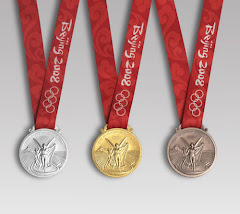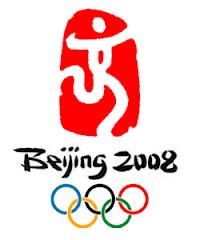
Now, to finally answer the question this whole project is based on. HOW HAVE THE OLYMPICS CHANGED ?
The Olympics Have changed in so many ways that I cannot mention them all, But I will try my best to.
Well, for a start in the early stages of the Olympic Games there weren't many women competing. In the first three Olympics the average number of women competing was around 22. And the average number of men competing was 1197,which is quite a big difference. In the Beijing Olympics almost 5000 of the participants out of about 10, 500 were women. So that is one big change.
There have also been changes to the events and participants.
There have been many events added to the Olympics since the first Olympic Games in Athens. In Athens there were only 43 events in 9 sports. In the Beijing Olympics there were 328 events in 29 sports, which is a huge difference.
The Olympic Rules have also changed.
The Olympic Games used to only welcome amateur athletes to compete. So when Jim Thorpe a young American athlete won his gold medals for the pentathlon and decathlon, but when they found out he got payed for playing 2 Seasons of minor league baseball, he was stripped of his Gold Medals for violating amateur state rules, because being payed for playing sport was counted as playing professionally, which you weren't allowed to do if you wanted to compete in the Olympics. Now in 2008 professionals make up the majority of the participants in the Olympic Games.
One of the biggest changes in the Olympic Games is the problem that occurs each Olympic Year. This problem changes through the Olympic years. It could be drug use in one year, and attempted boycotts in the other. But each Olympic year there is always a problem. There is rarely a Olympic Year without any controversy. This year it was more to do with the Environment. This change is one of the biggest and is the aspect of the Olympic Games that will be probably recorded in history. Like in the Athens Olympic Games it was so unorganized when a Yachting event was supposed to be held, no-one thought to show up with a boat, so it was cancelled.
Which brings up my last change that I will be listing, and it is the change in the events organisation. The events organisation is how well the event is organised. These days everything is organised much before the games and is to a higher quality than the others. For example in the 1896 Athens Olympic Games the swimmers had to swim in the open sea against the currents as well. In these days there are high tech swimming pools, that are built especially for the Olympic Swimmers, there are also suits to improve there swimming. But I guess it is because of the resources that we have today that we are able to do this. And because of the developing world there will always be changes to the Olympic Games. For the Good and the Bad.




